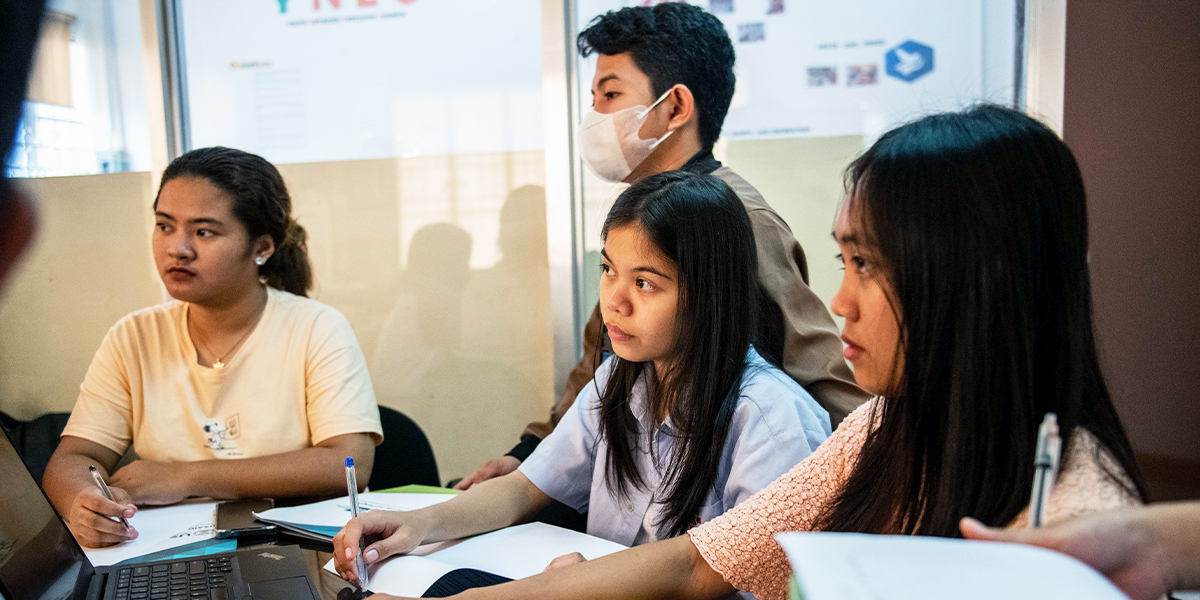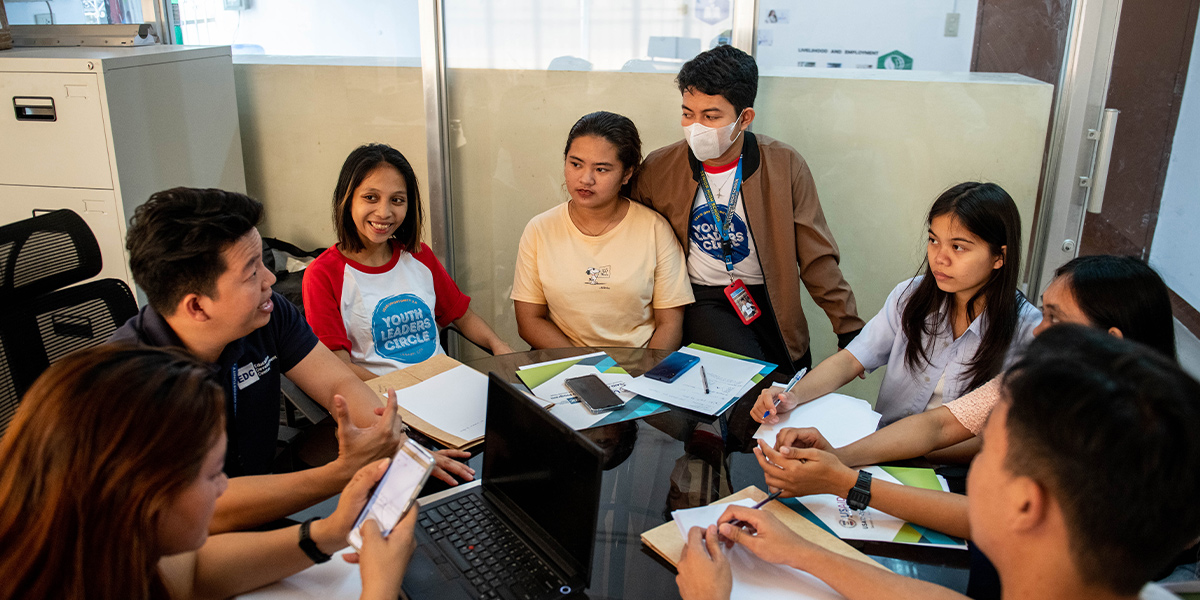The Future of Work is Here: Part 3 – A Future Proof Solution

In Part 1 of this series, we presented three trends impacting workforce systems globally: digital transformation and artificial intelligence; sustainability revolutionizing our economic landscape; and how and where we work in an era of interconnectivity, remote work, and increased gig work.
In Part 2, we explored the in-demand skills areas that employers across the globe most commonly expressed a need for:
- Resilience, flexibility, and continuous learning
- Creativity and innovation
- Digital skills
- Communication and collaboration
- Critical thinking
- Navigating career pathways
- Adaptive skills for sustainable economies
- Cross-cultural leadership skills
Additionally, evidence suggested that effective learning outcomes are associated with project-based and experiential learning1,2 instructors in the role of facilitators, students working collaboratively in teams, technology integrated into learning, work-based learning, and business exposure.
Here in Part 3, we’ll look at EDC’s solution created in response to our research.
As practitioners, our team at EDC channeled our research findings into the development of a solution: Future Proof Skills. Future Proof Skills is a comprehensive work-readiness and skills-development program designed for university students and recent graduates across the globe. It is particularly tailored for young job seekers in low- and middle-income economies. The program equips youth to develop in-demand skills so they can thrive in any type of workplace and weather constant change throughout their careers. Importantly, our aim is to position today’s youth to be at the forefront of innovation and leadership—to equip them to drive positive change in their communities and beyond.
The design of Future Proof Skills rests on this foundational premise: digital skills and human skills combined with the reality of today’s interconnected workplaces—including remote work—can be a great equalizer. For example, the combination of having solid digital skills and the increase in global gig work platforms opens doors previously closed. A young person in Liberia with skills certifications, a laptop, and a reliable Wi-Fi connection can use an online platform to build a career doing freelance work for companies based elsewhere in Africa—or across the globe.
Future Proof Skills engages youth in practical, active learning over 3–6 months. The hands-on program empowers them to learn in a digital space and interact in person with businesses around them. It applies a unique combination of teaching and learning methods:
- Student-driven learning: Youth are expected to learn and do their assignments independently and to choose options that best fit their skills and interests.
- Work exposure: Students explore their community, speaking to business people to learn about the local economy. They then use this knowledge to align their job search or start-up aspirations with the realities of that economy.
- Workplace projects: Youth work as interns with employers on real workplace problems, resulting in final products or solutions that are helpful to the host employers.
- Digital skills development: Youth evaluate their own digital skills, identify a skill gap, and work toward developing or improving that skill. Students are encouraged to use digital tools that align with their skills, interests, and goals.
- Blended learning: In this mix of online and in-person learning, youth engage in pre-session e-learning activities to learn about the session topics in advance. The online session then focuses on collaboration and the application of what was learned in those activities.
EDC is implementing Future Proof Skills in multiple locations to demonstrate the program’s versatility. In Liberia, youth-serving organizations, colleges, and universities deliver Future Proof Skills to youth, promoting their economic self-reliance and resiliency. In Vietnam, Future Proof Skills emphasizes leadership and transferrable skills for emerging and sustainable economies.
Looking forward, EDC plans to share Future Proof Skills with more partners around the world, localizing the curriculum to each new setting. EDC will soon be releasing a new module called “AI for Everyone: Exploring Artificial Intelligence in the Workplace.” Through Future Proof Skills, we anticipate seeing even more youth working with one another across borders, solving the world’s most pressing challenges, and finding sustainable, meaningful livelihoods.
Nancy Chervin is an international education and workforce advisor specializing in workforce readiness, market connections, and work-based learning. She focuses on the rapidly changing world of work through youth skills development and connecting educational institutions with employers.
Nora Nunn is an educator, writer, and international development practitioner. She specializes in instructional design, workforce development, and research, supporting EDC’s youth programs to make learning more equitable globally.
1Holm, M. (2011). Project-based instruction: A review of the literature on effectiveness in prekindergarten through 12th grade classrooms. Rivier Academic Journal, 7 (2). https://www2.rivier.edu/journal/roaj-fall-2011/j575-project-based-instruction-holm.pdf
2Edutopia. (2007). Why is project-based learning important? http://www.edutopia.org/project-based-learning-guide-importance







